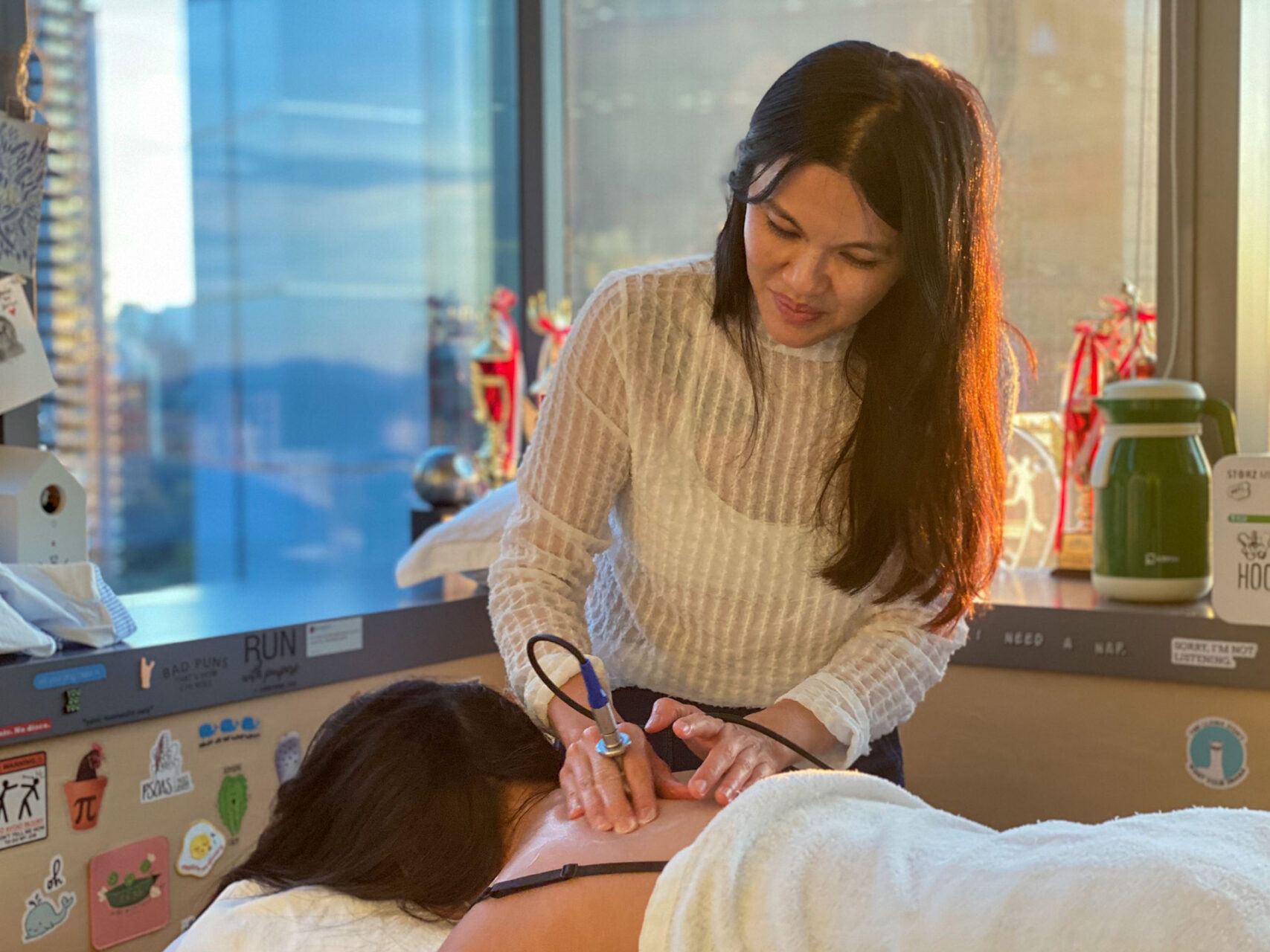|
Getting your Trinity Audio player ready...
|
A shoulder tendon tear often presents as pain, weakness and limited range of motion, making everyday activities like dressing, reaching above or sleeping difficult. Though commonly associated with athletes, this condition affects older adults more often due to age-related degeneration. Whether caused by overuse or acute trauma, a shoulder tendon tear should not be ignored.
What Is a Shoulder Tendon Tear?
A shoulder tendon tear is a disruption in one or more of the rotator cuff tendons in the shoulder.
The rotator cuff is a group of muscles and tendons that connect the shoulder blade (scapula) to the upper arm bone, stabilizing the arm and shoulder. These tendons stabilize the upper arm bone in the shoulder socket and allow you to lift, rotate and reach overhead.
Of the four rotator cuff tendons, the supraspinatus is the most commonly affected and various types of rotator cuff injuries can occur, including tendinitis and tears. Some tears develop gradually as tendinopathy worsens over time, while others occur suddenly due to injury or overloading.
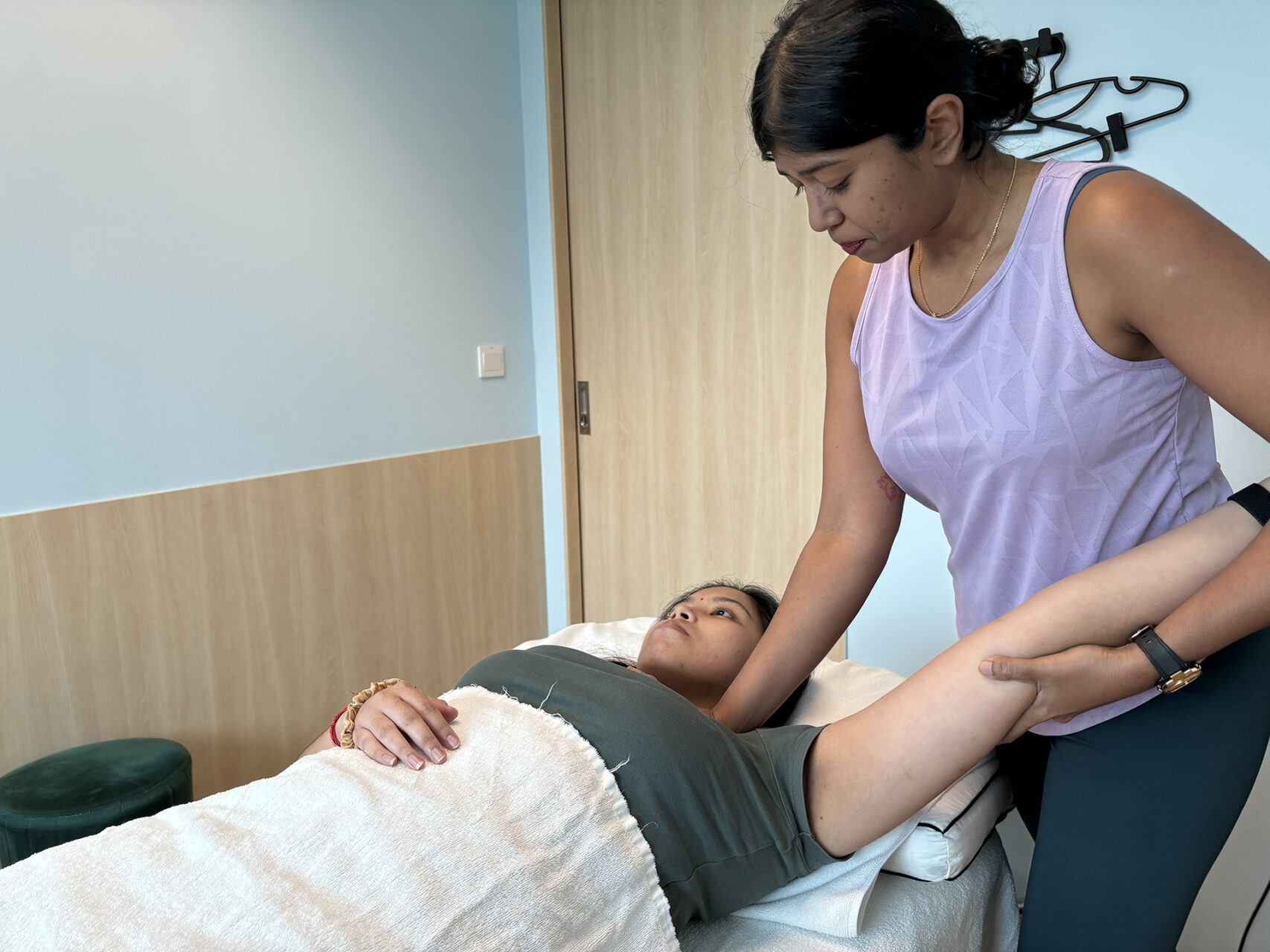
Types of Shoulder Tendon Tears
Understanding the different types of shoulder tendon tears is important for both diagnosis and treatment. Most rotator cuff tears fall into two main categories: partial tears and full-thickness (complete) tears.
A partial tear occurs when the rotator cuff tendon is damaged but not completely severed. In this case, some of the tendon fibers are attached to the upper arm bone (humeral head), and others are frayed or worn. Partial tears can cause significant shoulder pain and arm weakness, especially during certain positions or movements, but may still allow some shoulder function.
A full-thickness tear, also known as a complete tear, means the tendon has been completely torn away from the bone. This type of rotator cuff tear often results in more severe pain, a marked loss of arm strength and a dramatic reduction in the range of motion of your arms. In some cases, the entire tendon may retract, making shoulder movement very difficult. It’s important to treat shoulder tendon tears, regardless of their type, as they can affect your daily life.
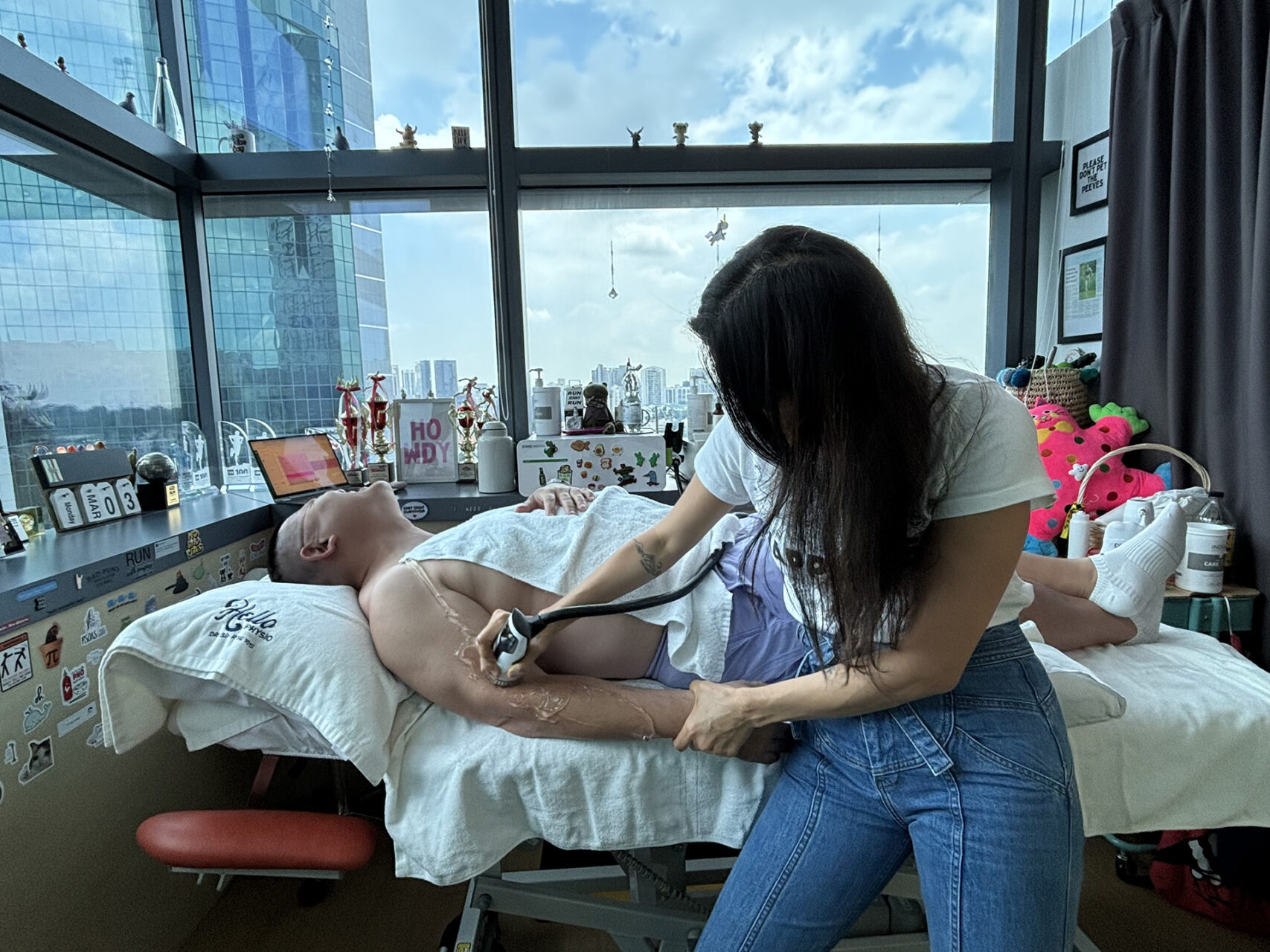
Causes of Shoulder Tendon Tear and Risk Factors
Shoulder tendon tears can occur from a combination of acute and chronic causes. Sudden injuries such as falling on an outstretched arm or lifting a heavy object overhead can strain or rupture a tendon instantly, often resulting in a rotator cuff injury. More often, though, tears are the result of repetitive overhead activities like swimming, tennis, painting or certain types of manual labor, which can lead to rotator cuff injuries over time.
Degenerative changes are also a significant risk factor. Over time, tendons lose elasticity and resilience due to reduced blood flow and collagen deterioration. A chronic tear can develop gradually, resulting in persistent shoulder pain that worsens if left untreated. Bone spurs on the acromion can further irritate the tendon, increasing the likelihood of tearing and contributing to impingement syndrome and impingement lesions, which are common causes of rotator cuff injuries.
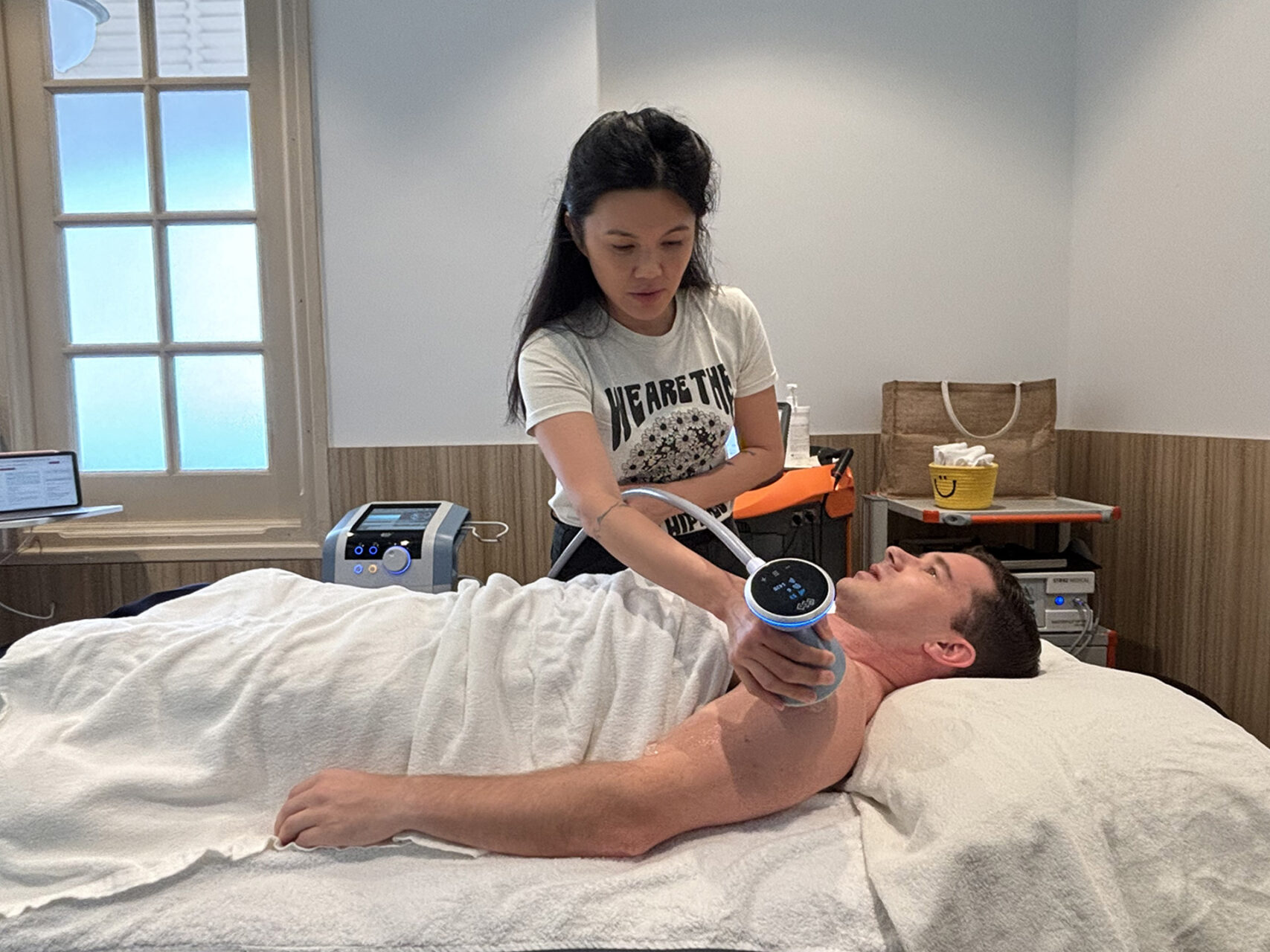
Signs and Symptoms of a Shoulder Tendon Tear
The symptoms of a shoulder tendon tear vary in intensity and presentation. Common signs include:
- Pain at the front or side of the shoulder, especially during overhead movements
- Rotator cuff pain, especially during movement or when using the arm for daily activities
- Night pain, especially when lying on the affected shoulder
- Weakness when lifting or rotating the arm
- Limited range of motion and stiffness
- Clicking or catching sensation during certain movements
Some patients may experience sudden, sharp, or intense pain at the moment of injury. This can be a sign of a more severe or traumatic tear. Others may experience a gradual onset of aching discomfort that worsens with activity. Arm pain can also be present, especially in cases of a partial or complete tear.
Diagnosing a Shoulder Tendon Tear
Diagnosis starts with a thorough physical exam. A physiotherapist or sports medicine specialist will assess shoulder strength, mobility and alignment through specific tests. Sometimes, a pinched nerve in the neck can mimic symptoms of a shoulder tendon tear, especially if the pain radiates down the arm.
Imaging is used to confirm the diagnosis and determine the extent of the injury. While X-rays help detect bone spurs or joint degeneration, they don’t show soft tissues. Ultrasound offers dynamic real-time visualization of tendon movement and tears. For a more detailed view, an MRI will clearly show the size, location and severity of the tear, as well as the involvement of other structures. An orthopaedic surgeon may be consulted for complex cases or when surgical treatment is being considered.
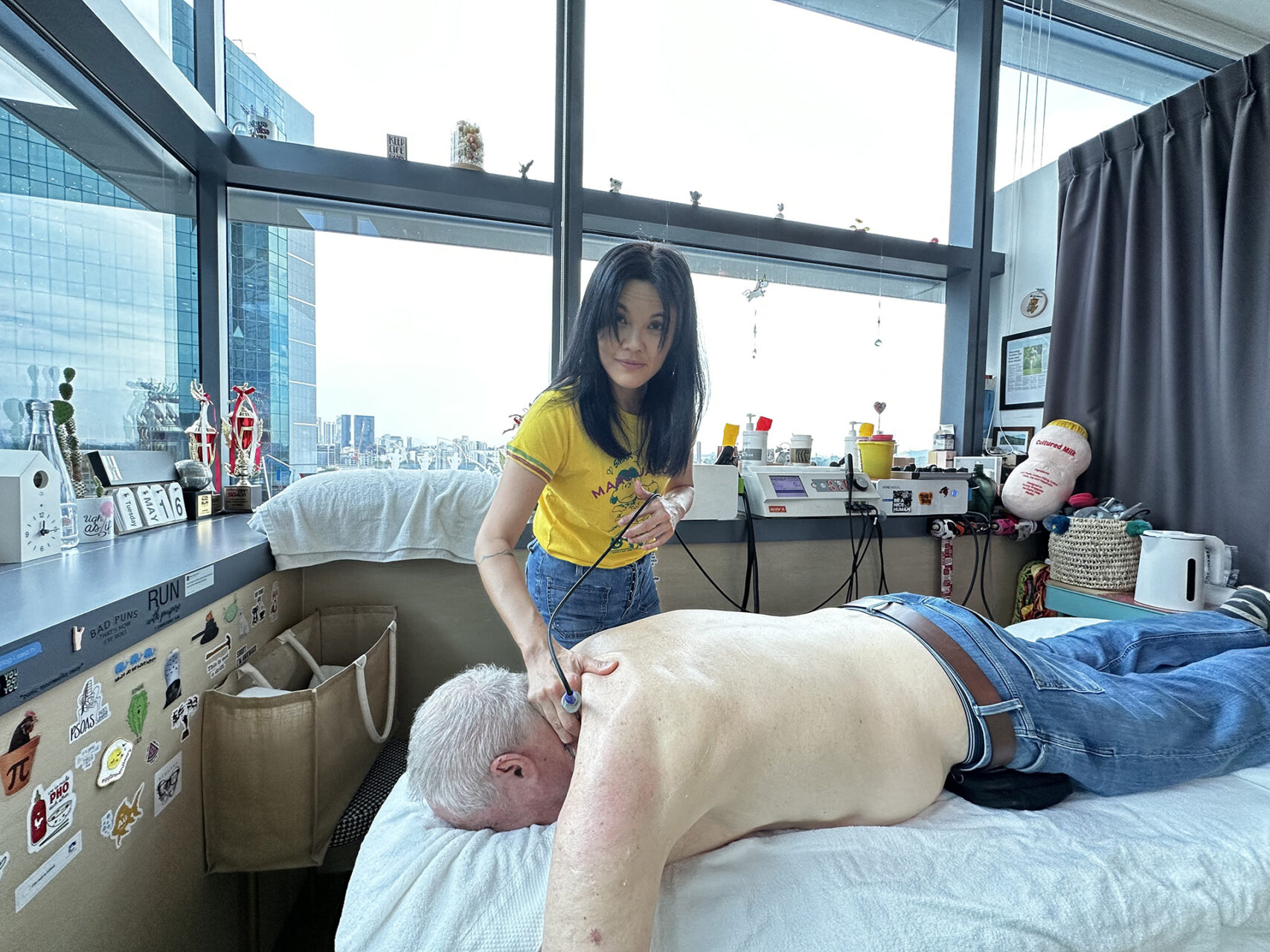
Nonsurgical Treatment Options for Shoulder Tendon Tears
In many cases, especially for partial tears, conservative shoulder tendon tear treatment can be very effective. The cornerstone of this recovery is physiotherapy.
At HelloPhysio, we design individualized programs that emphasize gradual tendon loading, improving scapular stability and correcting biomechanics. This often involves:
- Targeted stretching shoulder tendon tear exercises, and strengthening of shoulder muscles
- Postural re-education to reduce strain on the shoulder
- Joint mobilization and manual therapy to restore range and reduce stiffness
Additional therapies can speed up healing. Dry Needling, when applied to trigger points or irritated tissue, reduces muscular tension and stimulates circulation. INDIBA® Activ Therapy applies gentle radiofrequency to promote deep tissue healing, reduce inflammation and restore cellular balance. Shockwave Therapy is especially effective for chronic tendon injuries, delivering focused acoustic waves that stimulate repair and enhance blood flow. These can help reduce pain and support the healing process.
For many patients, combining these therapies into a holistic plan provides both pain relief and long-term restoration of function for shoulder tendon tears.
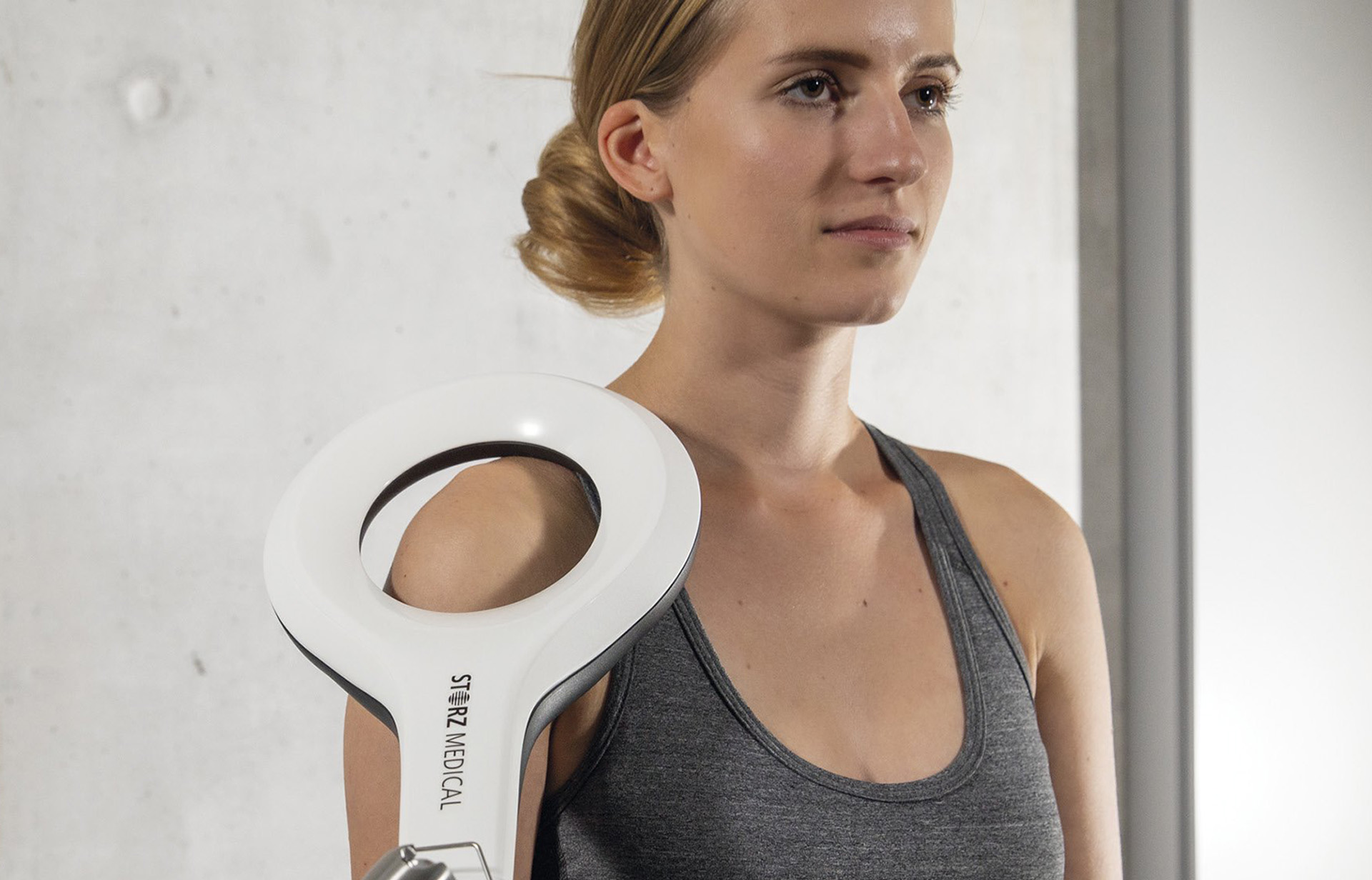
Surgical Intervention
If conservative management fails after several months, or if a complete tear is diagnosed, early surgery may be indicated, especially for a torn tendon that cannot heal with conservative treatment. Techniques range from minimally invasive arthroscopic surgery, which uses small incisions and allows for quicker recovery, to more extensive open surgery with a larger incision, which may be required for large or complex tears. In cases where the rotator cuff tear is irreparable, a tendon transfer, a specialized procedure to restore shoulder function, may be considered.
Recovery after surgery requires a staged rehabilitation program. The early focus is on protecting the repair and regaining passive motion. Gradually, patients progress to active mobility, then strengthening. Physiotherapy plays a critical role here in the rehabilitative process. The HelloPhysio team supports patients through each phase with targeted exercises and real-time feedback to optimize healing and restore shoulder function safely.
Role of Physiotherapy in Recovery
Physiotherapy is not just a tool for recovery, it is essential for full function. By restoring shoulder mobility and strengthening the shoulders, physiotherapy can help cut down shoulder tendon tear recovery time. Our approach at HelloPhysio emphasizes:
- Controlled tendon loading to stimulate remodeling without re-injury
- Neuromuscular retraining to re-establish proper shoulder mechanics
- Stretching exercises to maintain shoulder flexibility and prevent further injury
- Strengthening the entire kinetic chain, especially scapular and core muscles, to support overhead motion
- Educating patients on ergonomics, pacing and activity modification
When tendon healing is guided by a physiotherapy team that understands both biomechanics and recovery biology, patients are less likely to re-tear the tendon and are more likely to return to their pre-injury performance.
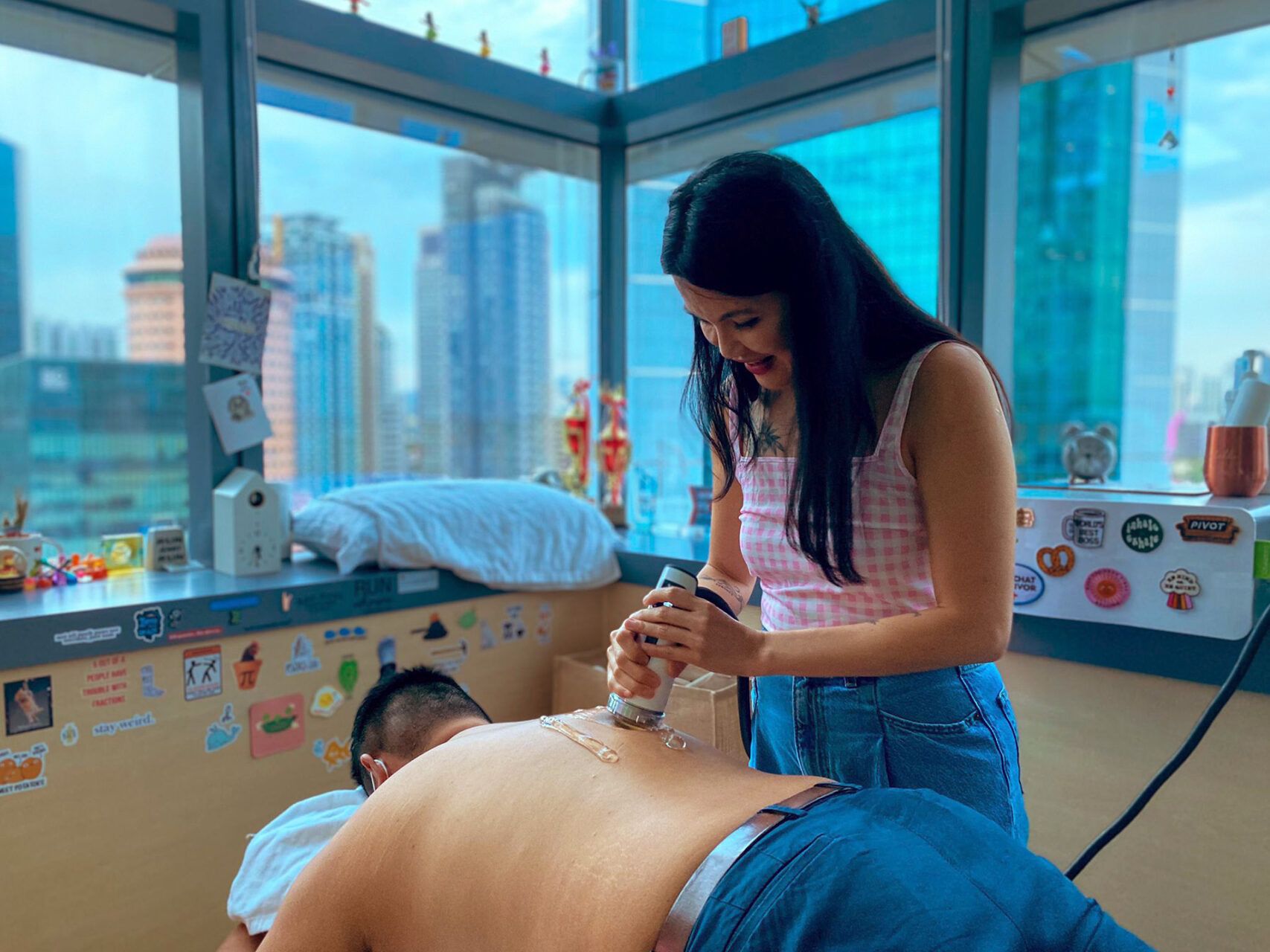
Preventing Shoulder Tendon Injuries
Prevention is the best strategy. Regular mobility and stability training, rotator cuff strengthening exercises, and scapular control exercises help keep tendons resilient. Adding stretching exercises and strengthening the shoulder muscles can help prevent rotator cuff problems and injuries.
Avoiding repetitive strain, correcting posture, maintaining healthy shoulder movements and optimizing sports technique are also important. There are also some shoulder tendon tear exercises to avoid, especially if they involve moving a weight overhead. Physiotherapists can identify risk factors early and provide corrective strategies tailored to your body, activity level and goals.
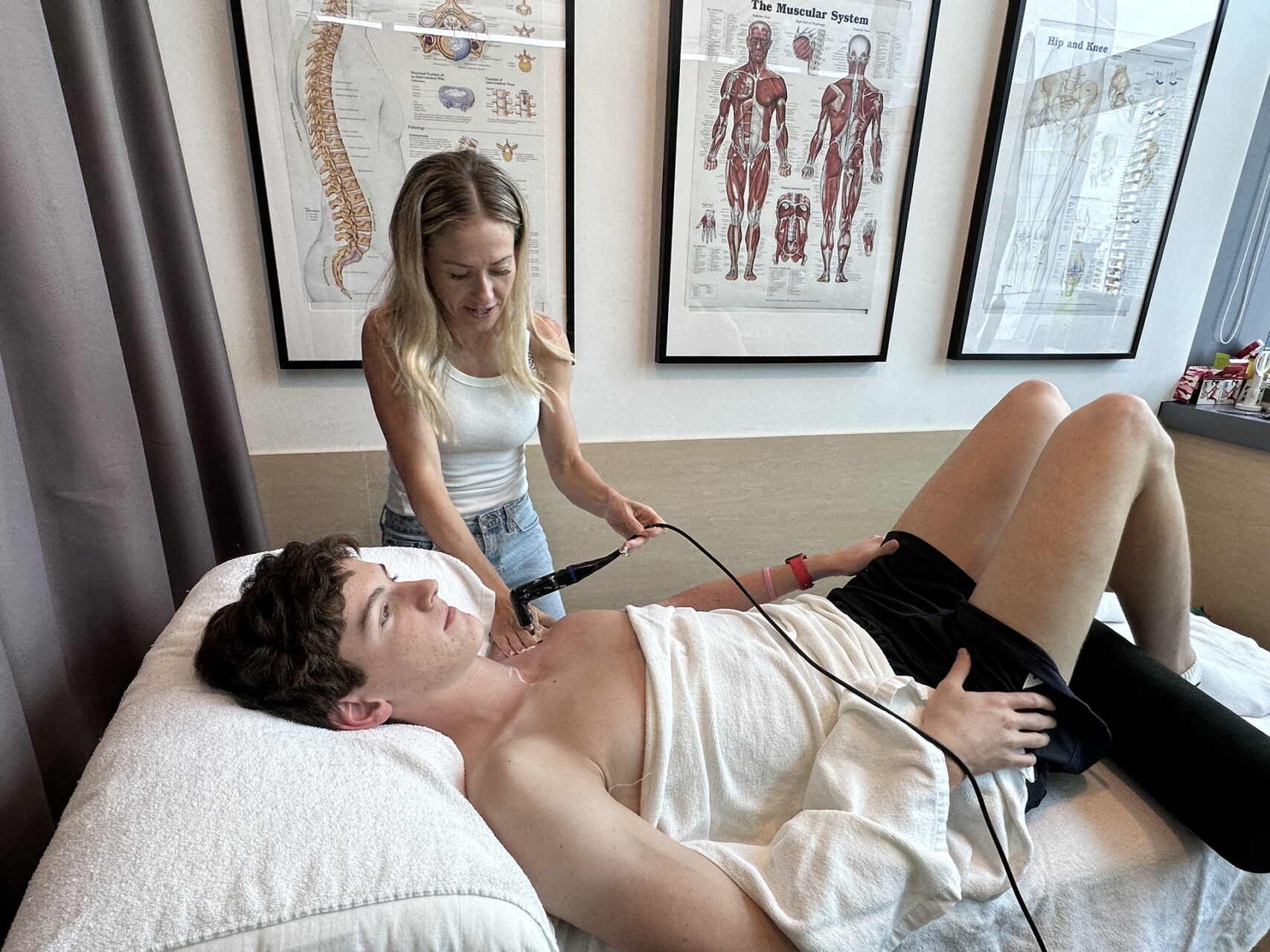
Living With a Shoulder Tendon Tear
Living with a chronic tear or chronic shoulder pain requires ongoing management. If you’re managing a chronic tear, chronic shoulder pain, or a partial or complete tear, physiotherapy can help you regain function. Your plan may include adjustments to your daily routines, modifications to your sports technique, or changes in your sleeping posture. Supportive tools, such as taping or shoulder braces, may be recommended to offload the tendon during activity.
When to Seek Help
If you’re experiencing ongoing shoulder pain for two weeks or more, weakness or difficulty lifting your arm, don’t wait. Indicators you should see a specialist include:
- Pain that interferes with sleep
- Difficulty raising your arm or reaching overhead
- Loss of strength or function
- No improvement with rest or basic treatment
Importantly, intense pain, especially after an injury, may indicate a serious rotator cuff injury and requires immediate medical attention.
If you have persistent rotator cuff problems or suspect a rotator cuff injury, it’s important to consult an orthopaedic surgeon for proper diagnosis and to discuss treatment options.
Ready To Take The First Step Toward Healing?
A shoulder tendon tear can feel like a major setback, but with the right approach, recovery is possible. At HelloPhysio, we treat shoulder conditions with a holistic approach that incorporates the latest research, advanced technologies such as INDIBA and Shockwave Therapy, and real-world experience.
Book a consultation with HelloPhysio to begin your journey to strong, pain-free shoulder movement.

